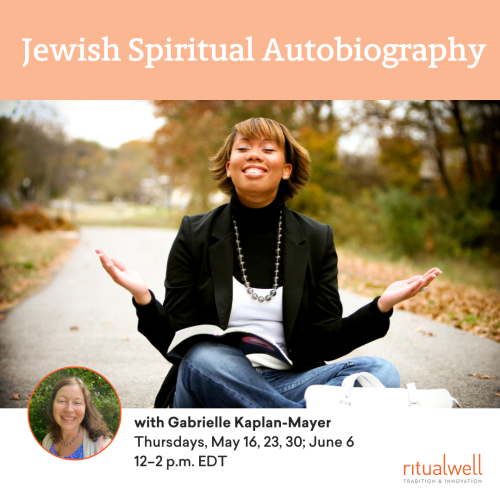We wanted a traditional Jewish wedding, but, as two women, we weren’t a traditional Jewish couple.
From our journey down the aisle to the blessings after the wedding meal, every part of the ceremony seemed to hint that it wasn’t intended for us. Even though the traditional Birkat HaMazonGrace after meal: traditional versions include four blessings for the food, the land, Jerusalem and God's goodness. There also are many abbreviated or alternative versions. (blessing after the meal) text addresses different possible family situations, it does not include ours. The betrothal blessing Birkat ErusinLit. Betrothal Once a separate ceremony, but now a segment of the contemporary wedding ceremony. specifically mentions biblically forbidden relationships, prohibiting exactly what we were intending to do. And even before we rewrote the words of the ketubahThe Jewish wedding contract. Traditionally, the ketubah protected the wife in marriage by spelling out the husband's obligations to her and guaranteeing her a financial settlement in case of divorce. Throughout the ages, ketubot (plural) have been illuminated and calligraphed, becoming significant as Jewish art. Today, all manner of egalitarian ketubot are written. Some dispense with the financial and legal aspects, focusing more on the emotional and spiritual sides of the relationship. Others maintain the rabbis' concern with the practical, but define mutual obligations for each spouse., we had to grapple with the fact that traditionally only the man signs it. As we worked through these issues we found both meaningful answers and a profound role for our tradition that we didn’t expect.
Overall, we did not see the Jewish wedding ceremony as homophobic, but rather as heterosexist. And we wanted what many other committed Jewish couples want—a Jewish wedding. At the time we got married, we were both studying to be rabbis. Jewish tradition holds a special place in our lives, and we never pictured ourselves getting married with anything other than the words which have been uttered by generations. We couldn’t see this most sacred moment going by without Judaism’s holy words.
But some of those holy words presented a problem for us. Aside from the simple changes: chatan v’kalah (groom and bride) to kalah v’kalah (bride and bride), there were philosophical struggles. One of the first blessings recited at a wedding speaks about “forbidden relationships”—including ones like ours. So that had to be changed. We opted to bless the loving couple instead of chastising forbidden relationships.
The actual line that changes the status of two single people into one married couple, “Harei at mekudeshet li b’taba’at zu k’dat MosheThe quintessential Jewish leader who spoke face to face with God, unlike any other prophet, and who freed the people from Egypt, led them through the desert for forty years, and received the Torah on Mt. Sinai. His Hebrew name is Moshe. v’Yisrael” (behold you are set apart for me with this ring according to the law of MosesThe quintessential Jewish leader who spoke face to face with God, unlike any other prophet, and who freed the people from Egypt, led them through the desert for forty years, and received the Torah on Mt. Sinai. His Hebrew name is Moshe. and IsraelLit. ''the one who struggles with God.'' Israel means many things. It is first used with reference to Jacob, whose name is changed to Israel (Genesis 32:29), the one who struggles with God. Jacob's children, the Jewish people, become B'nai Israel, the children of Israel. The name also refers to the land of Israel and the State of Israel.), presented a different kind of problem. Was our marriage “k’dat Moshe v’Yisrael,” according to the law of Moses and Israel? Was this the tradition of Moses and Israel that our sages envisioned? We added the phrase”ha’mitkhadeshet v’ha’mitpatakhat,” the ever-evolving law of Moses and Israel, because we don’t believe that tradition has ever stood still.
Our wedding marked a sacred day in our lives. We needed to see ourselves and our future family in Birkat Hamazon, to feel accepted by the ceremonial liturgy and to see our relationship reflected in our ketubah. Judaism has always evolved and adapted to new, modern realities. The changes we made to the Jewish wedding strove for inclusion in place of exclusion, and acceptance in place of judgment. In the end, even as we moved further away from some parts of tradition, we drew closer to others.
Researching and writing our ceremony opened our eyes to the richness of our tradition, and the ways it can be enhanced through modern evolution and additions. Rather than feel “left out and abandoned” by traditional Judaism, planning our wedding helped us to feel profoundly included in our ancient liturgical words.
Explore some of the rituals that Helayne and Jaimee used in their wedding:
Erusin: modern betrothal blessing
Evolving vows: language for ring exchange that recognizes ever-evolving laws of Moses
Sheva brakhot: wedding blessings for two female identified partners
Rabbi Helayne Shalhevet is the rabbi at Temple Beth Emeth of Mount SinaiAccording to the Torah, God, in the presence of the Jewish people, gave Moses the Torah on Mount Sinai (Har Sinai)., NY. Rabbi Jaimee Shalhevet is the associate rabbi at North Shore Synagogue of Syosset, NY. They both enjoy studying and teaching all that Judaism has to offer an evolving and ever-changing world. They live in Plainview, NY, with their son, Samuel.






